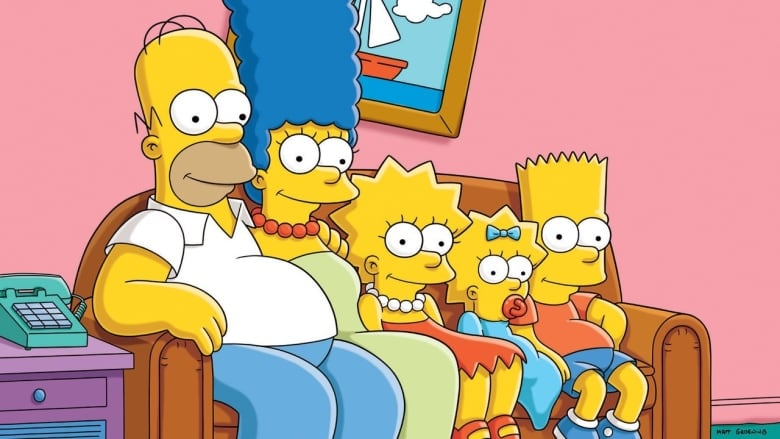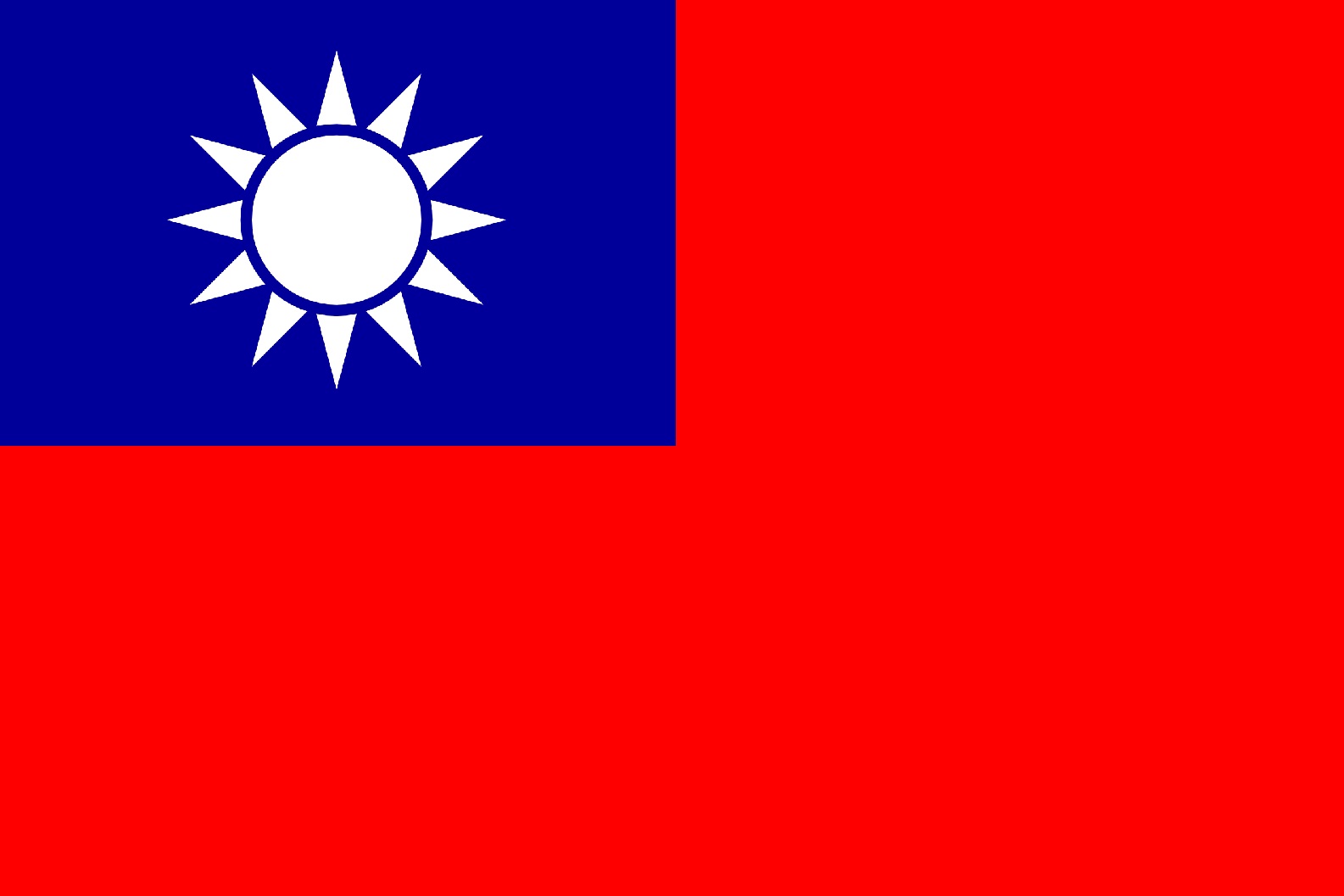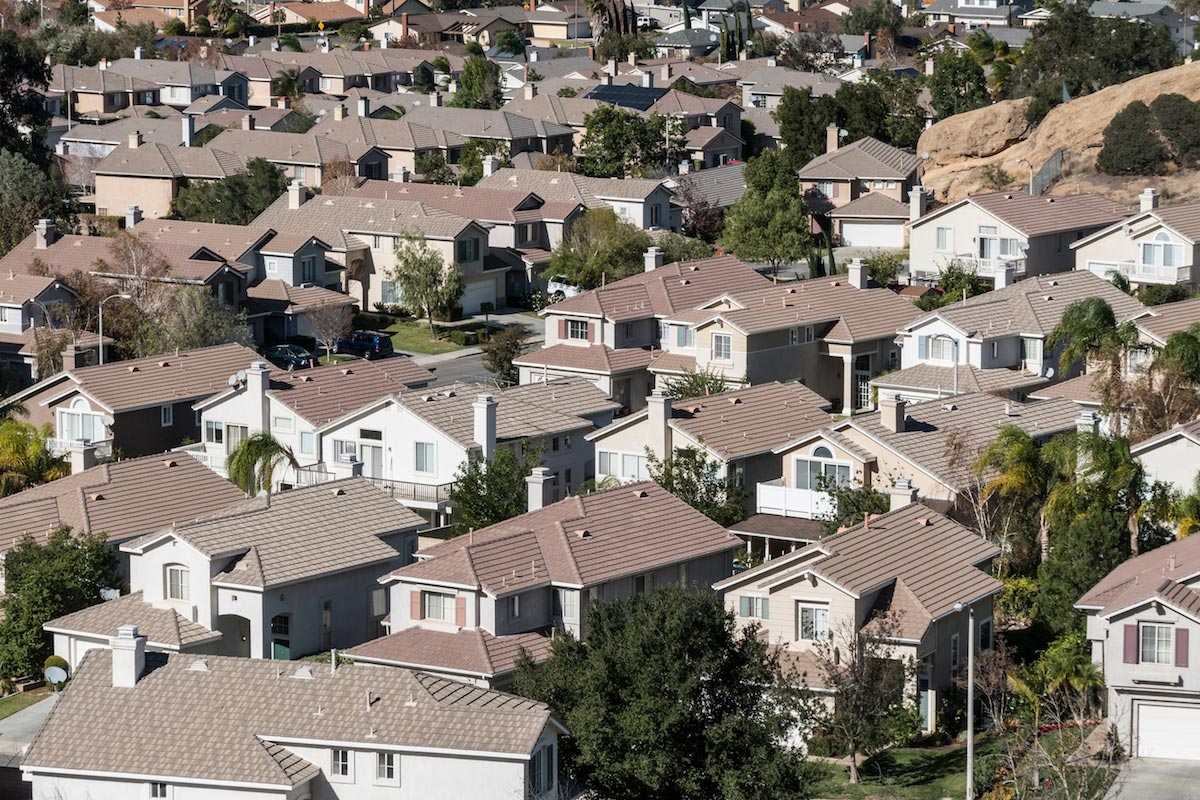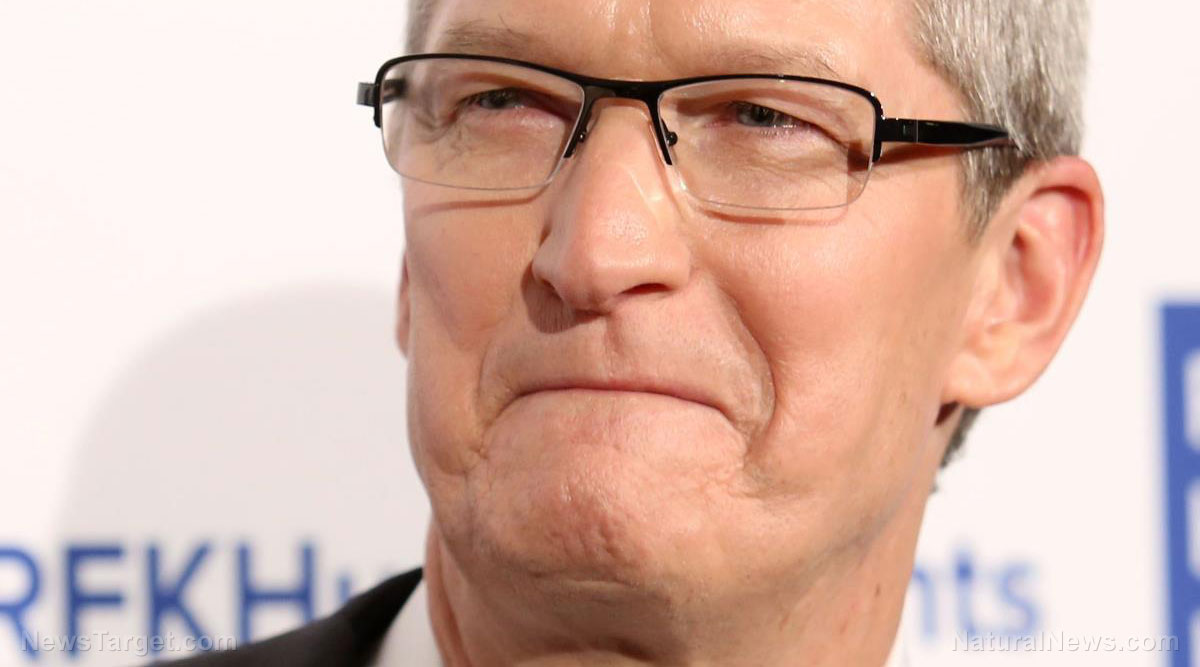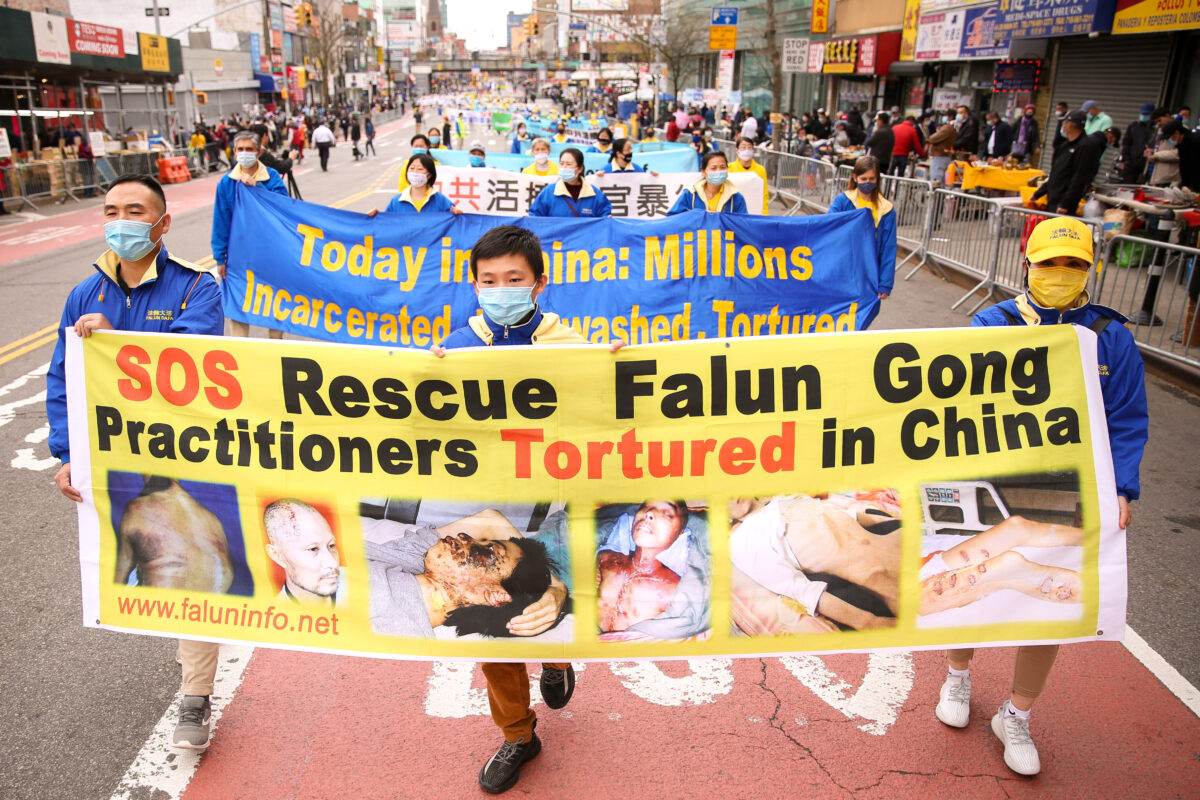Chinese censorship rising quickly as era of a single, global internet draws to a close
08/12/2021 / By Nolan Barton
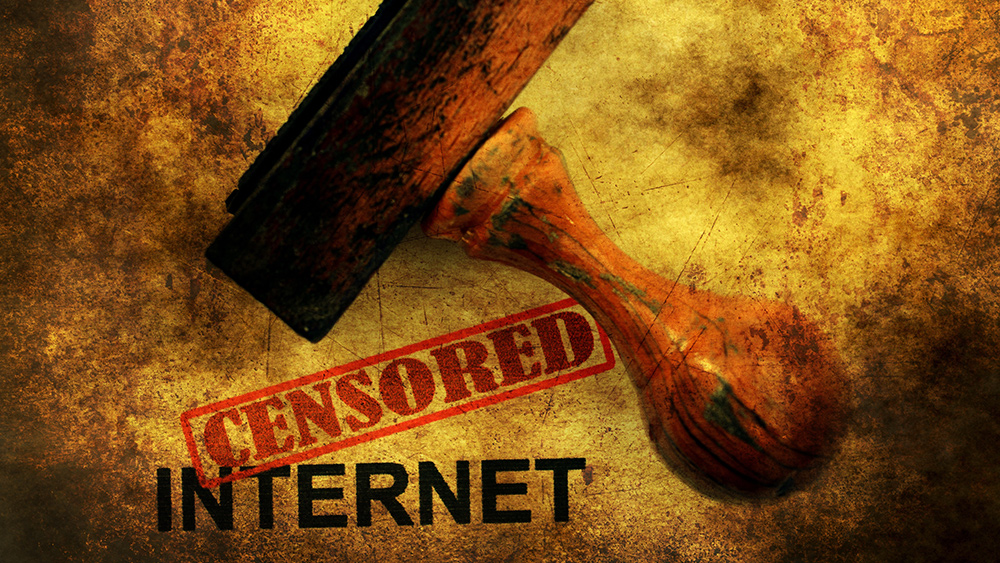
Authors Wendy Hall and Kieron O’Hara are arguing that the era of a single internet is drawing to a close and set to be replaced by different versions living alongside each other.
Rising from the ranks of those versions is China’s censored version of the internet, which is largely controlled by Beijing.
The rise of the “Four Internets”
The internet has evolved from a government-funded research project for military scientists, to an academic network, to a vehicle for e-commerce and now to a platform for social content. Only one thing remained constant: The idea that the internet is a single open network in which anyone can join and where everything is connected via a standard set of protocols and rules.
This is about to change, according to Hall and O’Hara’s book, “Four Internets: Data, Geopolitics and the Governance of Cyberspace,” published this month in the U.K. Here, they argue that the “four internets” are already taking shape.
The original and still on top is the “Silicon Valley” model, which is open and libertarian. Anyone can join the network, no single authority is in charge and there are few rules about what sort of information can be transported across the network. It asks for forgiveness rather than permission.
Next is the “Washington D.C.” version, which prioritizes data collection and corporate interests. It doesn’t mind Big Tech companies collecting massive amounts of information on citizens, provided that it generates profits and excellent products for consumers to enjoy.
The third is the “Brussels bourgeois,” which is controlled, respectful, polite, decent, well-behaved, well-mannered and considerate. Preferred by most European Union countries, it is quick to launch anti-trust cases and punish companies that move quickly and break things.
Finally, there is the fast-developing “Beijing” internet. Over the last 20 years, the Chinese government has gradually brought the internet to heel through its doctrine of “cyber sovereignty.” (Related: US Senator introduces bill promoting internet freedom in the face of Chinese censorship.)
China’s technology checks what’s coming in from the rest of the world. IP addresses they don’t approve of are blocked. All internet content providers are held liable for what appears on their websites under an insidious “you yourself decide” code that encourages everyone to turn into draconian self-censors to avoid trouble.
The Chinese model is starting to spread – most visibly in Africa. Various governments in that continent are happy to buy cheap Chinese technology, including surveillance and artificial intelligence technology.
Authoritarian internet: Where censorship in the name of harmony trumps all
In the UK, the Investigatory Powers Act 2016 required internet companies to keep a record of the websites that a person visit for a year. It was revealed earlier this year that the government was testing a surveillance technology as part of that law. That technology could track and record everything that every single person in the country does on the internet.
There’s also the issue concerning facial recognition technology. Last year the Court of Appeals deemed that South Wales Police’s use of live facial recognition technology was unlawful. This year, the police started testing retrospective facial recognition technology instead. (Related: We’re watching you: UK traffic flow cameras secretly switched to monitor pedestrians.)
Then there’s the proposed Online Harm Bill, which aims to make companies more responsible for user safety on their platforms. It will force tech firms to take on a “duty of care” and remove “harmful content” while keeping up “democratically important” material. If the British bill passes, it will invariably mean proactive and excessive censorship with the government setting the tone.
The U.K. seems to like the Beijing model. According to a recent YouGov survey, 78 percent of British people want users to disclose their real identity when signing up on social media. The survey followed the controversy over racist attacks on England footballers after the team lost the European Championship final. Most of the attacks came from anonymous social media accounts.
Labour Members of Parliament Margaret Hodge, Angela Rayner and Jess Philips have all argued that not allowing users to be anonymous will force them to be accountable for their actions.
An article published by UnHerd argued that it’s not clear that such a move would deal with the problem as “a decent chunk of online abuse comes from anonymous users overseas.” The article then asked: “What of those who have good reason to stay anonymous online – the whistleblower, the undercover journalist, the teen in a self-help group?”
“It’s possible to see the UK drifting accidentally into its very own authoritarian internet … where censorship in the name of harmony trumps all and where surveillance is built in to the rules and the tech,” the article said.
Silicon Valley may be worse than Beijing in terms of censorship
A solid argument can be made that the Silicon Valley model is worse than Beijing’s version of internet in terms of censorship. Big Tech companies from Silicon Valley have censored a sitting American president in Donald Trump, which would be the equivalent of Beijing’s tech companies censoring Chinese President Xi Jinping.
Social media platforms like Facebook and Twitter have codes of conduct that they apply to situations online. For example, they don’t allow adult content and violent imagery.
Nobody wants illegal content online, but identifying unlawful content remains a big challenge. Big Tech companies turned to algorithms to solve the problem, but algorithms turned out to be a bigger problem – especially for users.
People can no longer have conversations online without possibly getting censored.
A group called WNY Gardeners has been repeatedly flagged by Facebook when its more than 7,500 members discussed the long-handled gardening tool “hoe.” Facebook’s algorithms often flag this particular word for “violating community standards,” apparently referring to a different word – one without an “e” at the end.
When one member commented “Push pull hoe!” on a post about preferred weeding tools, Facebook sent a notification that read: “We reviewed this comment and found it goes against our standards for harassment and bullying.”
“Kill them all,” “drown them in soapy water” and “Japanese beetles are jerks” were the other harmless comments posted in the group that Facebook deemed offensive.
Follow SearchEngine.news for more news related to the internet and censorship.
Sources include:
Tagged Under: adult content, algorithms, Big Tech, censorship, cyberspace, Donald Trump, European Championship, facial recognition technology, illegal content, retrospective facial recognition, self-censors, Silicon Valley, Social media, tech firms, violent imagery, whistleblower, Xi Jinping
RECENT NEWS & ARTICLES
COPYRIGHT © 2020 CommunistChina.News
All content posted on this site is protected under Free Speech. CommunistChina.News is not responsible for content written by contributing authors. The information on this site is provided for educational and entertainment purposes only. It is not intended as a substitute for professional advice of any kind. CommunistChina.News assumes no responsibility for the use or misuse of this material. All trademarks, registered trademarks and service marks mentioned on this site are the property of their respective owners.




